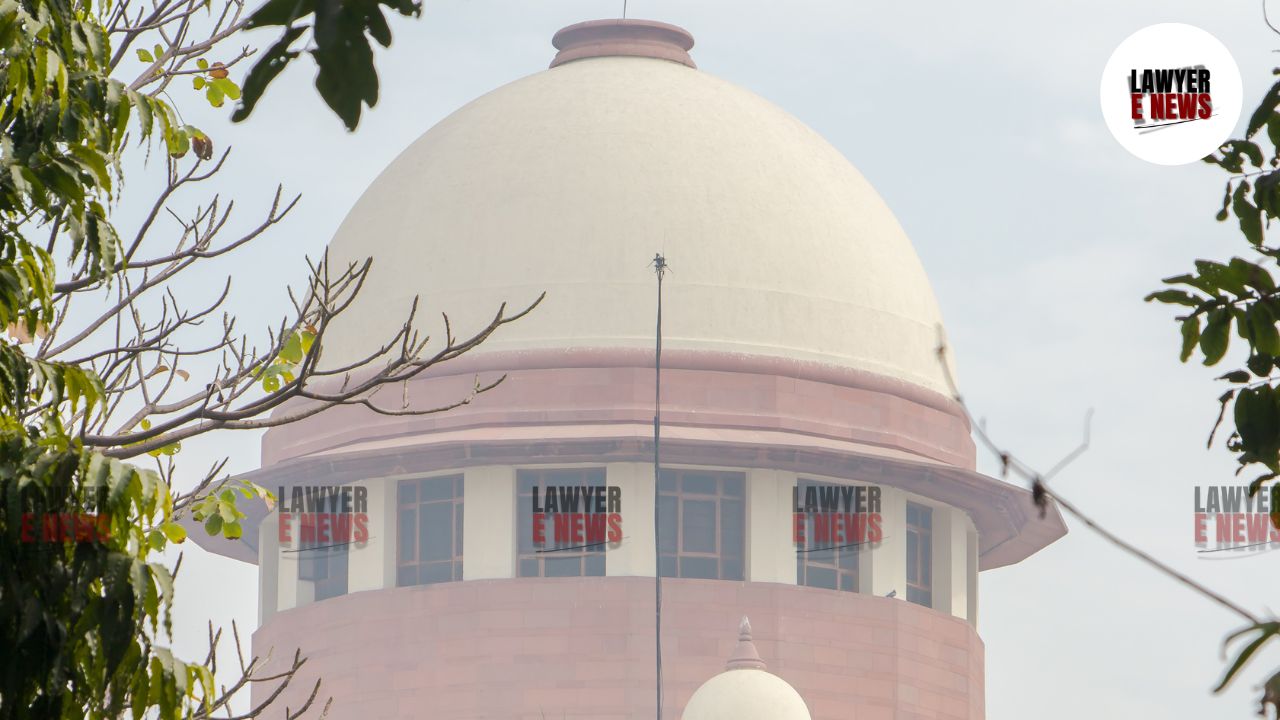-
by Admin
15 February 2026 5:35 AM



Supreme Court of India in State of Karnataka v. Chandrasha reversed a Karnataka High Court acquittal and reinstated the conviction of a government official under the Prevention of Corruption Act, 1988. A three-judge bench, led by Chief Justice Sanjiv Khanna, concluded that the accused, a treasury assistant, had been rightly convicted for demanding and accepting a bribe of ₹2,000 to process a bill. The Court emphasized the foundational importance of proving "demand and acceptance" for corruption cases.
“Demand and Acceptance Are Indispensable Elements”
In reaffirming the principles of corruption law, the Court reiterated that under Sections 7 and 13(1)(d) of the Prevention of Corruption Act, the prosecution must establish beyond reasonable doubt the demand and acceptance of illegal gratification. “It is settled law,” the bench noted, “that mere possession or recovery of currency notes is insufficient unless the prosecution proves demand and acceptance as facts in issue.” The Court relied on precedents such as C.M. Girish Babu v. CBI and B. Jayaraj v. State of A.P. to underscore this principle.
The judgment pointed out that, in this case, demand had been recorded on tape by the complainant, Subhashchandra S. Alur, and corroborated by the testimonies of other witnesses. The Lokayukta Police subsequently conducted a successful trap, recovering the tainted money from the accused’s possession. The evidence demonstrated that the respondent, Chandrasha, had accepted the bribe to process a leave encashment bill.
The Karnataka High Court had acquitted the respondent by holding that no official work was pending with him on the trap date, suggesting the absence of motive for demanding a bribe. The Supreme Court rejected this reasoning, observing that the bill was incomplete until the cheque was issued. The Court clarified:
“When the bill was submitted to the Sub Treasury for sanction, only after issuance of the cheque to the concerned party, the work would be treated as completed. The respondent's retention of the cheque establishes a nexus between the demand for gratification and his official duties”.
Presumption Under Section 20 of the Prevention of Corruption Act
Citing Neeraj Dutta v. State (Govt. of NCT of Delhi), the Court explained that once demand and acceptance are established, Section 20 of the Prevention of Corruption Act permits a presumption that the gratification was for an illegal purpose. It added:
“The presumption under Section 20 is a legal one and shifts the burden of proof to the accused. In this case, the respondent’s explanation—that the money was a loan—was unsupported by any evidence and, therefore, failed to rebut the presumption”.
Restoring the trial court’s decision, the Supreme Court affirmed the respondent’s guilt under Sections 7 and 13(1)(d) of the Act. The trial court had sentenced him to six months’ imprisonment for the former charge and two years for the latter, to be served concurrently, along with fines. The Court observed:
“The evidence of the complainant and shadow witnesses, supported by the seizure of tainted currency and forensic reports, leaves no room for doubt regarding the respondent’s culpability”.
This judgment reinforces the critical importance of demand and acceptance as the cornerstones of corruption charges. The Court clarified that an incomplete official act does not preclude a conviction if the accused has accepted gratification tied to an official favor.
The case also demonstrates the Court’s reluctance to interfere with trial court findings when supported by comprehensive evidence. As the judgment noted:
“Once the aspects of ‘demand’ and ‘acceptance’ have been established beyond doubt, no two views are possible, and the acquittal must be overturned”.
Date of Decision: November 26, 2024
